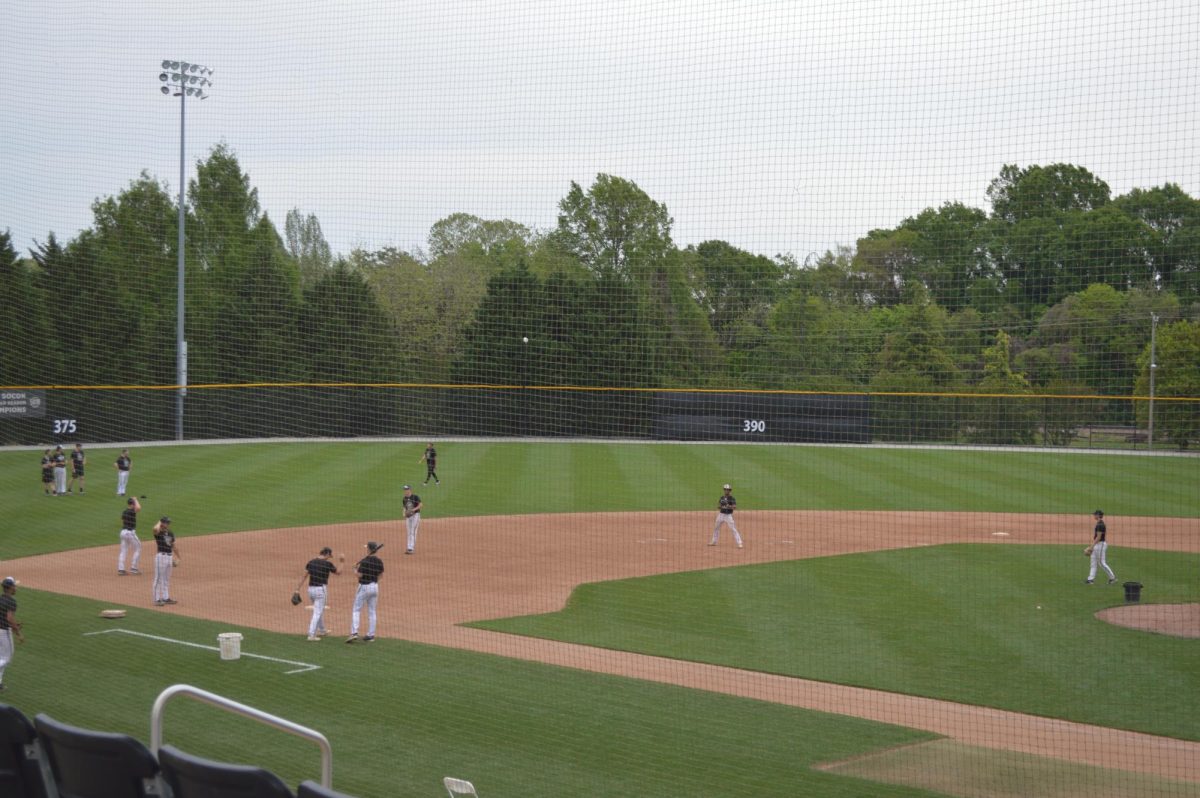Fall sports season a priority for the Southern Conference
While Carolina vs. Clemson falls victim to scheduling changes, Wofford vs. Furman is still in the cards…for now.
After decisions from the Big Ten, the SEC and the ACC to shift their fall sports scheduling to mostly, if not exclusively, conference-only, the Southern Conference remains without a definite plan.
However, Commissioner Jim Schaus, entering his second year after a COVID-shortened spring season, is very hopeful that fall sports will be played in a way that protects the health and safety of all athletes and personnel involved, and is confident that a finalized plan is coming sooner rather than later.
“Having the spring cut short like that was challenging, disappointing for student-athletes, coaches, and fans that didn’t get a chance to see an NCAA basketball tournament or the finish of our spring sports championships,” Schaus said. “I think that we’re getting very close to determining what our plan is going to be. I think we wanted to take our time not to be the first one out there trying to make decisions on this.”
And they were not.
Early in July, the Ivy League, another mid-major conference, made national headlines when it announced that all fall sports would be postponed until the spring. This decision stemmed largely from more general decisions made by each individual institution including restricted travel, social distancing requirements and limitations on the number of students allowed on campus.
In Commissioner Schaus’s eyes, the 10 Southern Conference member institutions should follow suit and make their own decisions in order to do what is best for them. However, with schools like Wofford, Furman, Mercer and others opting to move to remote learning after students leave campus for Thanksgiving break, the decision about what to do about athletes still in season and athletes preparing for possible winter sports becomes that much more important with the arrival of August.
“I think it’s important, now that we have athletes back on campus who are starting to go through workouts, [that] all the schools have their own protocols for COVID-19 and practices,” Schaus said. “We’ve visited with them about that. In the near future, about a week from now, I think we’ll be in a much different place in terms of where we’re gonna be.
Commissioner Schaus also said that, while a conference-only schedule makes a lot of sense in terms of pushing back games and giving time for possible future treatments, the “guaranteed money games” that smaller schools play against larger universities present a possible financial loss for mid-major teams and conferences as Power Five conferences choose to be more exclusive.
“Those games, financially, are very important to our schools, but obviously this is something we have no control over,” said Schaus. “We’ll have the same issues in basketball. Our schools usually play one or two of those games, and the revenue from those games is very important to their overall operating budget.”
Furman’s budget took a huge hit after in-person classes were cut short last semester. In May, the university announced that it would be cutting both its baseball and its men’s lacrosse programs, a move that came as a result of an estimated multimillion-dollar deficit created by room and board refunds, losses in tuition, and canceled summer events among other things.
The Commissioner’s response?
“Certainly not surprised.”
Schaus: “I think they put a lot of time, energy, and effort into making that decision. I certainly support and understand what they needed to accomplish to do that. Dropping sports is always a challenge—it’s a very difficult decision to make just like any organization or business has to sometimes make reductions or changes, but those are necessary for the overall health of the organization.”
The SoCon headquarters has made cuts and budget-based decisions of its own as well. Conference personnel will be traveling to sporting events, conventions and seminars less, conference tournament fields in all team sports other than football and basketball have been reduced to just four teams and media days for football and basketball players and coaches will be exclusively virtual.
While conference leadership remains hopeful to play a fall sports season, in the midst of a nationwide spike in COVID-19 cases, having a conference based in the southern United States may seem a bit risky. With seven of the 10 member institutions residing in North Carolina, South Carolina and Tennessee, all of which are in the top 20 states in the country in cases, the possibility of eventual postponement or cancellation looms large, especially as a bubble format employed by professional sports leagues is far from practical on the collegiate level.
“We’re just taking it one season at a time,” Schaus said. “Our hope is that we’ll have fall seasons for our fall sports and we’ll move forward and have our championships. We know that something can happen and it may not be wise or tenable to be able to continue. At this point, we want to do it in a health and safety way, and that’s our plan.”
























